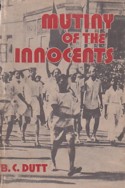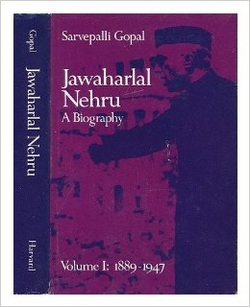
The nation of Israel, the last great colonial enterprise of the Western world, exists in a harsh, hot climate, surrounded by enemies that deny it a right to exist. For years, it served as beacon of democracy and Western military supremacy, but now it threatens to fall into theocracy and political isolation. Israeli journalist Ari Shavit presents his own personal history of Israel with My Promised Land, a fast-reading account of a young nation's struggles along the eastern shore of the Mediterranean Sea.
Shavit drives his narrative forward with extensive interviews. Many of his discussions feature the complex heroes and villains of the Zionist enterprise: settlers, warriors, and spies; capitalists, socialists, and politicians. Though he cuts the interviews with dashes of biography, historical context, and personal reflection, in the main Shavit allows his protagonists to co-author his book, so that they can defend their hopes, dreams, and doubts.
Shavit begins with a chapter out of his own family history. In the closing moments of the nineteenth century, an English-Jewish ancestor visited Palestine for the first time. He surveyed the countryside, and settled there a few years later. The Jewish settlers of the late 19th century tackled the problem of creating a Jewish homeland in a way similar to other herculean colonial enterprises, such as the Suez Canal; they raised capital from abroad, and then added tremendous amounts of human labor. They bought land from the waning elite of the Ottoman Empire. When necessary, they forced the removal of the serfs and tribes that had occupied the land for centuries. Intellectually, the Jewish immigrants felt tied to Europe, but they knew that Europe no longer wanted them; in the desert they began to forge a new identity, one with less room for the individual spirit and conscience, and much more aggressive than what they inherited from their diaspora ancestors.
The European Jews, imitating European colonial powers, looked at Palestine as a backwards, empty land. They never saw the Arabs as inhabitants. They only saw an empty land open to the aspirations of Jewish nationalism. The Jewish settlers especially sought out the rich coastal soils of Palestine. They wanted collective economic success and secular socialism, not the restoration of Biblical landmarks in the hills to the east. In time, the disenfranchised Arab serfs began to push back against the newcomers with sporadic murders and assaults on Jewish settlements.
The Jews responded to the violence with calls for the forced migration of Arabs out of Palestine. By 1938, the language of David Ben Gurion echoed that of world leaders working elsewhere: "I support compulsory transfer. I do not see anything immoral in it."
Shavit then traces how individuals like Shmaryahu Gutman drew on ancient Jewish symbols of resistance, like the mass suicide at the Masada fortress in 73 CE, thus "using the Hebrew past to give depth to the Hebrew present and enable it to face the Hebrew future." A rootless nation searched for its Hebrew past like a long forgotten spring and, once rediscovered, held onto those ancient waters with emotions that tottered between tenacity and desperation.
Jewish survival in Palestine required collective organization for social, political, and military conquest. The end of the British Mandate heralded a new era of Zionism. The Zionist political leaders rushed into action in 1948 and sliced off a portion of the region designed to ensure a Jewish majority in the newborn country of Israel.
Shavit cannot help but look back at his country's history with awe, love, and pride--and so Shavit's presentation is as personal as it is insightful. As a journalist he expands that history by inserting the memories, fears, and dreams of other Israelis. His emotional exploration of Palestine brings with it a humor and sadness all its own, one that fights against the coldness of a historical narrative.
Perhaps his most effective chapter relates the crisis of Lydda, 1948, in its absolute tragedy. The fatigued, desperate Jewish soldiers scrambled to the very edge of the Arab village of Lydda. And then, assuming the worst, the soldiers (including Moshe Dayan) charged through town with armored vehicles, guns blazing. Israel's founding political leaders abstained from making a clear decision to force the removal of the Arabs from the village, thus preserving their reputation in Europe and America. The absence of oversight turned their young Israeli soldiers into aimless cannons which the Arab civilians had to dodge through flight. The Arabs abandoned their dignity and homes for the sake of momentary security, and straggled out of Lydda (and many other villages) on long, deadly marches. Throughout the early years of Israel, trepidation gnawed at the backbone of Jews and Arabs alike, prompting them to edge deeper into the depths of human behavior.
Interestingly, Shavit mourns the loss of the Israeli character that inspired Zionism in the 1930s, 1940s, and 1950s. "On the one hand [Zionism] was a colonialist enterprise. It intended to save the lives of one people by the dispossession of another. In its first fifty years, Zionism was aware of this complexity and acted accordingly...but after 1967, and after 1973, all that changed...." The victories and traumas of 1967 and 1973 forever altered the political landscape of the Middle East, and the social fabric of Israeli society.
Israel initiated the Six Day War of 1967 to create a political buffer between themselves and the surrounding Arab nations, and in anticipation of an Arab attack just over the horizon. Israel caught its rivals completely off guard, and won the war with superior preparation and complete surprise. The victories of 1967 left Israel drunk with victory, and far more land than they had hoped for at the outset of their enterprise.
The occupied territories soon complicated the problems of Zionism. Many defeated Arabs were unable to immigrate to another country, and to this day they remain imprisoned in small tracts of land in Gaza and the West Bank. Though tragic and inhumane, the experiences in Gaza and the West Bank are not a second Holocaust. As Shavit says, 'no one can seriously think there is any real similarity. The problem is that there isn't enough lack of similarity. The lack of similarity is not strong enough to silence once and for all the evil echoes." And so the Israelis live in close and dangerous proximity to the people they displaced, and those people watch them day after day. The Israelis look back with wary eyes, "the jailers imprisoned by their jail."
Israelis desperately want to believe in their country--their nation--as established fact. They want release from the terrible fear that haunts the low-land orchards, the ancient alleys of Jerusalem, and the drug-soaked discotechs of Tel Aviv. But Shavit sees no release from the fear. Modern Israelis lack the secular hardness of their grandparents and great-grandparents. The melting pot of 1948 now congeals into separate small-minded elements: right-wing, left-wing, Oriental Jew, ultra-orthodox, capitalists, settlers, and rootless Palestinian refugees. The soft selfishness of individualism undermines the collective consciousness necessary for survival in the Middle East. He anticipates a second Holocaust, easier than the first due to the small spot of land upon which the Jews now live, and the tools of nuclear destruction that he believes will soon sprout among Israel's many Arab neighbors.
Shavit repeatedly calls his book a personal history. He offers somewhat skewed interpretations of many key events. For example, he calls the 1936 Arab revolt "a collective uprising of a national Arab-Palestinian movement," but leaves the revolt poorly explained and poorly reasoned, ignoring the way that economic modernization can threaten tribal honor; he also never identifies the key leaders of the revolt, or their localized motives.
Yet Shavit writes with a journalistic candor, and he conveys epic history. To tell his story, he chooses certain perspectives and subjects as stepping stones along the path. My Promised Land, therefore, never presumes to be a comprehensive volume. It assumes knowledge of pivotal figures like David Ben-Gurion, Moshe Dayan, and Golda Meir. It also assumes a familiarity with British colonialism, the First and Second Worlds Wars, and the conflicts of 1948, 1967, and 1973. Yet Shavit's use of expanded, effusive stanzas of dialogue help paint the story of Israel in powerful, nuanced strokes of darkness and light.



 RSS Feed
RSS Feed